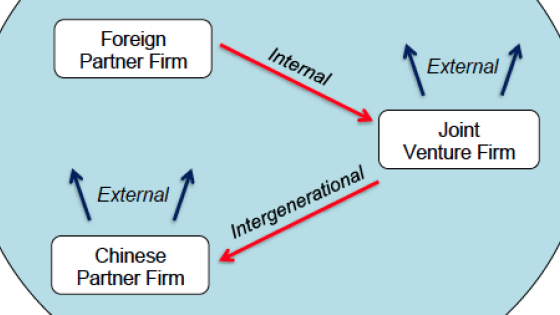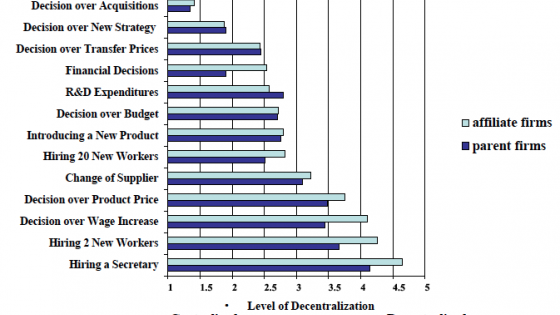Developing countries routinely offer corporate tax breaks, duty drawbacks, infrastructure provisions, and other subsidies to attract affiliates of multinational companies (MNCs). The hope is that their physical presence generates spillovers to the rest of the economy. However, despite such a prominent policy tool for development, the empirical evidence supporting positive spillovers is still debated (see Harrison and Rodriguez-Clare 2010, Farole 2011, and Keller 2021 for a discussion).
In a recent study (Guillouet et al. 2021), we show that a simple friction – namely, language barriers within MNCs – could impede the initial transfers of knowledge and thus the potential for spillovers. Our analysis measures this barrier, analytically clarifies when a policymaker should intervene, and implements two experimental protocols to examine if conditions for policy intervention exist in a relevant setting: MNCs operating in Myanmar’s first and largest Special Economic Zone (SEZ), the Thilawa SEZ, which provides tax exemptions and preferred infrastructure access to its tenants.
The problem is straightforward. A typical MNC subsidiary is led by experienced foreign managers (FMs) who supervise less-experienced domestic middle managers (DMs) who supervise domestic production workers. Communication between a foreign and a domestic manager occurs in a language that is not native to at least one layer. In Myanmar, communication typically occurs in English, a non-native language for both layers. Surveys revealed that the English proficiency of domestic managers is low on average and that language barriers impede transfers of management knowledge from foreign to domestic managers within the firms, thus preventing their diffusion outside of MNCs. Our project is one concrete example of how contextual factors can shape the success or failures of development policies (Nunn 2019 and, on the importance of cultural factors on economic outcomes, Spolaore and Wacziarg 2015).
Knowledge transfers should improve if domestic managers can communicate more easily with foreign managers. But MNCs and employees should internalise this friction, and since reducing language barriers is costly, we should not expect MNCs to operate without any language frictions. From a policy perspective, the questions are:
- What is the inefficiency that leads to the privately chosen communication levels differing from the planner’s choice?
- Should a policymaker intervene to raise communication levels between domestic and foreign managers?
- What practical policy instrument could mitigate the inefficiency and raise the potential spillovers from MNCs?
A stripped-down model pins the inefficiency to a standard assumption within organisational economics: communication inside the firm is non-contractible (Dewatripont and Tirole 2005). Survey evidence reveals the plausibility of this assumption. For example, domestic managers report ideally wanting more interactions with their foreign managers than they have during the workweek, and two-thirds of domestic managers indicate a willingness to pay for an additional hour meeting that exceeds their foreign manager’s hourly wage, but such transfers do occur. If the knowledge acquired by the domestic managers through communication with the foreign manager is a general skill – i.e. a skill that is valued in the domestic market – then although the friction takes place ‘within the MNC’, from the planner’s point of view it leads to an undersupply of communication between organisational layers. The planner, therefore, wants to intervene to improve communication levels between foreign and domestic managers and thus increase management knowledge transfers. What practical policy instrument could achieve this goal? If language ability is complementary to communication, a policymaker can (partially) correct the inefficiency by offering language subsidies to the employees at MNCs.
We designed two experimental protocols to examine if the two key assumptions – general skills and complementarity – are present in Myanmar.
The first protocol examines whether the management knowledge learned through communication at MNCs is a general skill valued by domestic employers. We recruited a sample of human resource (HR) managers who work at domestic Myanmar firms to rate hypothetical, yet realistic resumes of job applicants for a general management position. Indeed, HR managers place a premium on applicants with English knowledge or MNC experience, and particularly value applicants with both characteristics. In a second exercise, which imitates answers to questions likely asked during recruitment interviews, we find further that HR managers particularly value applicants with frequent interactions with foreign managers at a previous job. The valuation for this attribute is on par with the premium placed on a commonly used hard skill. These findings support the assumption that MNCs impart general management knowledge that is valued by the domestic labour market.
The second experiment explores the complementarity between communication and English proficiency. At 27 MNCs operating in the Thilawa Special Economic Zone, we randomly offered 298 domestic managers the opportunity to attend a 48-hour English training course for free. At the end, treated domestic managers’ English ability improves relative to control. Several results support the complementarity assumption: treated domestic managers report having more frequent communication and interactions with foreign managers (but not with other domestic managers), having a higher (hypothetical) willingness to pay for additional time interacting with foreign (but not with other domestic) managers, and being more involved in the management of company personnel.
We also designed a ‘management lab’ a that simulates the organisational structure of the MNC. English-speaking members of our survey team (acting as ‘foreign managers’) gave instructions to domestic managers to get a standardised task done by ‘production workers’, acted out by non-English speaking members of our survey. We find that treatment domestic managers manage the task faster with no differences in mistakes – i.e. they achieve higher performance – relative to control domestic managers. Treatment domestic managers, however, ask more questions and spend more time communicating with the ‘foreign manager’, supporting the complementarity assumption.
Finally, we recently completed a longer-run survey to assess potential differences in skills acquired between treatment and control domestic managers. Unfortunately, this survey was complicated by the pandemic and the February 2021 military coup. Notwithstanding these shocks, the survey provides some evidence that the intervention raised certain general soft skills among treatment domestic managers.
Our project explores the conditions for policy intervention in Myanmar, but we believe that such conditions arise in other contexts. The adoption of English as the corporate lingua franca is increasingly common (Economist 2014), particularly outside of Anglophone countries. Additionally, recent decades have seen a sharp rise in South-South foreign direct investment (FDI) flows, such as the surge of Chinese investments in Africa (Hanson 2012, Tang and Chen 2014). For example, Uganda recently added compulsory Mandarin education to selected secondary schools, presumably to take advantage of the large inflow of Chinese FDI in recent years. There are, of course, many justifications for such language policies, and our study highlights one specific benefit: potential knowledge transfers from MNCs.
References
Dewatripont, M and J Tirole (2005), “Modes of communication”, Journal of Political Economy 113: 1217–1238.
Economist (2014), “The English empire”, The Economist.
Farole, T (2011), “Special economic zones: What have we learned?”, VoxEU.org, 28 September.
Guillouet, L, A Khandelwal, R Macchiavello and M Teachout (2021), “Language barriers in multinationals and knowledge transfers”, NBER Working Paper 28807.
Hanson, G H (2012), “The rise of middle kingdoms: Emerging economies in global trade”, Journal of Economic Perspectives 26: 41–64.
Harrison, A and A Rodriguez-Clare (2010),“From hard to soft industrial policies in developing countries", VoxEU.org, 27 June.
Keller, W (2021), “Knowledge Spillovers, Trade, and Foreign Direct Investment”, NBER Working Paper 28739.
Nunn, N (2019), “Rethinking economic development”, Canadian Journal of Economics 52: 1349-1373.
Spolaore, E and R Wacziarg (2015), "Ancestry and Culture", VoxEU.org, 27 June.
Tang, H and W Chen (2014), “The dragon soars: Micro evidence on Chinese outward direct investment", VoxEU.org, 22 September.







